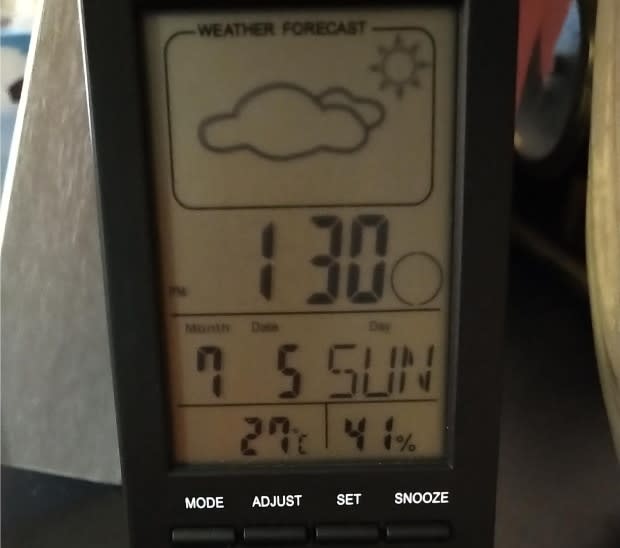Ford to consider making air conditioning mandatory for care homes amid complaints of sweltering conditions

Premier Doug Ford says he's open to changing the legislation that governs the province's long-term care homes to mandate the installation of air conditioning after hearing about residents who are living in sweltering conditions.
"I'd consider it," Ford said Tuesday, responding to a question from CBC Toronto.
The premier, who was speaking to reporters during the province's COVID-19 update, also had strong words for the owners of the facilities.
"I'd like to get these owners that don't put in air conditioners — I'd like to stick them in the room for 24 hours, 30 degree heat, see how they like it — or put their parents in there," said Ford, who was visibly worked up.
'We've been through a lot'
Ford's comments come as many families continue to find their loved ones struggling during a heat wave that has blanketed the Greater Toronto Area for several days.That's on top of all the restrictions in place due to the novel coronavirus, which has claimed the lives of hundreds of long-term care residents across the province.
Nick Puopolo, whose 85-year-old mother Savirea lives at Woodbridge Vista Care Community in Vaughan, Ont., measured the temperature of her room over the weekend.
It was 27 C with 40 per cent humidity, he says.
WATCH: Premier Doug Ford said he would consider mandating air conditioning at long-term care homes
"It's frustrating. We've been through a lot these last few months."
Puopolo's mother was one of the more than 100 residents at the home to contract COVID-19. She survived the disease only to fall ill with a life-threatening urinary tract infection, according to her family. They say she has now recovered from that, too.
Woodbridge Vista Care Community was one of five long-term care homes taken over by the province after the facility was overwhelmed by COVID-19. The William Osler Health System was appointed as interim manager and the Canadian Forces were also called in to battle the outbreak. A total of 24 residents died.
Puopolo is frustrated that his mother and the other residents have to battle the heat, as well.
"Now, they're being told to live in these facilities with no air conditioning, and according to [the owners], it meets the standards, which is ridiculous," he said.
Long-term care homes act
Puopolo points to Ontario's Long-Term Care Homes Act as part of the problem because it does not mandate air conditioning.
The legislation states every licensee of a long-term care home shall "ensure a written hot weather related illness prevention and management plan for the home" and if central air conditioning is not available, the home has to have at least "one separate designated cooling area for every 40 residents."
But due to COVID-19 and physical distancing rules, adhering to the regulations isn't realistic, according to the families of long-term care residents and the Advocacy Centre for the Elderly.
"It's really serious. We get complaints every summer," said Jane Meadus, staff lawyer with the centre, who agrees the legislation should be changed.
Puopolo also puts the responsibility on the home itself.
"If this company was true to taking care of family members ... they shouldn't be pushed to do this. It should be something they're doing on their own."
'These poor, elderly people'
In a statement, Natalie Gokchenian, director of communications for Sienna Senior Living, which owns and operates Woodbridge Vista Care Community, told CBC Toronto COVID-19 protocols made it harder to cool the building with the air system in place.
"In addition, fans that would normally be used to cool resident rooms are required by Public Health to be turned off to prevent spreading of the virus," she said.

The company says it is installing 18 separate air conditioning units by Wednesday.
Meanwhile, Ford has vowed to contact the home himself.
"It's terrible. These poor, elderly people — they can't defend themselves. That's our job."

